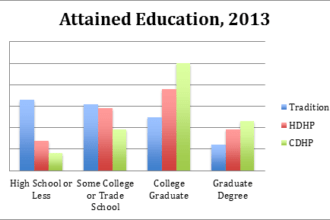The editor of Drug Benefit News, Anthony Vecchione asserts (Copay Cards Could Be Win-Win If All Sides Work Together). I really don’t think so. In fact, my home state of Massachusetts is the only one that’s got things right. Here the cards are banned outright. Vecchione’s argument:
The editor of Drug Benefit News, Anthony Vecchione asserts (Copay Cards Could Be Win-Win If All Sides Work Together). I really don’t think so. In fact, my home state of Massachusetts is the only one that’s got things right. Here the cards are banned outright. Vecchione’s argument:
When it comes to the topic of drug companies’ copayment cards, the consensus among PBMs and health insurers is pretty clear. The discount cards, issued by pharmaceutical companies to defray patients’ out-of-pocket costs, interfere with payers’ ability to manage trend and the formulary process.
But because it’s unlikely that copay cards will disappear anytime soon, some industry analysts are calling on PBMs, payers and employers to look at copay cards as a multi-dimensional issue where there are opportunities for a win-win.
He reports on a webinar presentation by George Van Antwerp and Sean Brandle suggesting that it’s too difficult for payers to resist the cards completely, so instead they should seek opportunities to use them to increase adherence, which may drive up drug costs but hold down overall medical costs.
I’m not buying it. The only reason pharmaceutical companies issue these cards is to circumvent financial incentives put in place by health plans to encourage the use of less expensive alternatives, whether branded or generic. The cards are a good value for drug companies because they remove the price signal from the patient, driving up third-party reimbursement. The result is higher pharmacy costs, which drive up total medical costs and health plan premiums.
As the article describes, payers have a variety of tools in hand to counteract the use of these cards, but they are only partially effective, administratively complex and may cause collateral damage to members who don’t use the cards. These include closed formularies, higher copay differentials among drug tiers, “member-pays-the-difference” programs, step-therapy, member education, and contract language to prohibit coupon use. What he have here is a prime example of administrative waste in the system: moves and countermoves designed to distort the system on the one hand and straighten it out on the other.
The words “costly” and “government regulation” are frequently used together, and rightfully so. But a regulation banning drug co-pay cards is not costly. In this case it reduces administrative and medical costs without harming patients. In this case Massachusetts –the only state in the country that bans these cards– has it exactly right.







